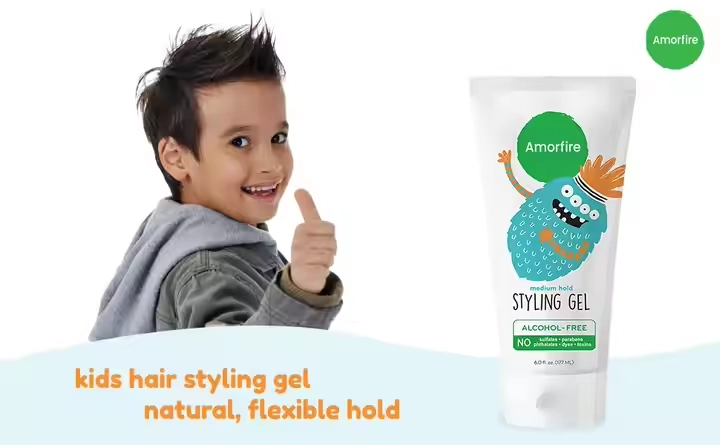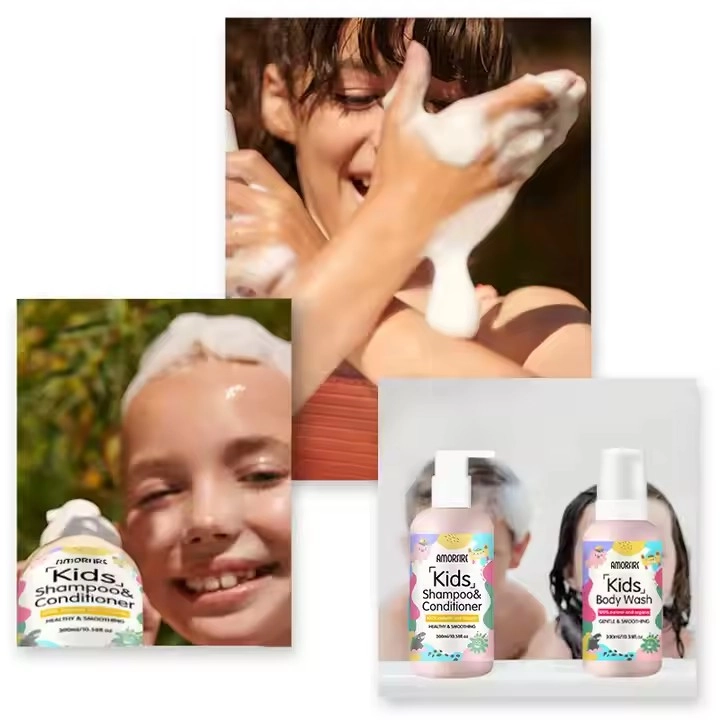Views: 220 Author: cosmeticsinhot Publish Time: 2025-11-16 Origin: Site








Content Menu
● Understanding Baby Allergies
>> What Causes Allergies in Babies?
>> Signs of Allergies in Babies
● Choosing Safe Baby Care Products
>> 2. Opt for Natural and Organic Products
>> 4. Consult with Healthcare Professionals
● Essential Baby Care Products for Allergy-Prone Babies
>> 5. Sunscreen
>> 1. What should I do if my baby has a reaction to a product?
>> 2. Are organic products always better for allergy-prone babies?
>> 3. How can I tell if a product is truly hypoallergenic?
>> 4. Can I use adult products on my baby?
>> 5. How often should I bathe my allergy-prone baby?
Choosing the right baby care products for allergy-prone infants can be a daunting task for parents. With the increasing prevalence of allergies and sensitivities among babies, it is crucial to select products that are safe, gentle, and effective. This article will guide you through the process of selecting baby care products that cater specifically to allergy-prone babies, ensuring their delicate skin remains healthy and irritation-free.

Babies can develop allergies due to a variety of factors, including genetic predisposition, environmental triggers, and exposure to certain substances. Common allergens include:
- Food Allergens: Milk, eggs, peanuts, tree nuts, soy, wheat, fish, and shellfish.
- Environmental Allergens: Pollen, dust mites, pet dander, and mold.
- Chemical Allergens: Ingredients found in personal care products, such as fragrances, preservatives, and dyes.
Recognizing the signs of allergies in babies is essential for timely intervention. Common symptoms include:
- Skin reactions such as rashes, hives, or eczema.
- Respiratory issues like wheezing, coughing, or nasal congestion.
- Digestive problems, including vomiting or diarrhea.
If you suspect your baby has an allergy, consult a pediatrician for proper diagnosis and management.
When selecting baby care products, especially for allergy-prone infants, consider the following factors:
Always read the ingredient labels on baby care products. Look for:
- Fragrance-Free: Products labeled as fragrance-free are less likely to cause allergic reactions. Avoid those with terms like "parfum" or "natural fragrance."
- Hypoallergenic: While this term suggests a lower likelihood of causing allergies, it is not a guarantee. Always check the ingredients.
- Free from Harsh Chemicals: Avoid products containing parabens, phthalates, sulfates, and other potentially harmful chemicals.
Natural and organic baby care products are often formulated without synthetic chemicals, making them a safer choice for sensitive skin. Look for products that contain:
- Natural Oils: Such as coconut oil, olive oil, or jojoba oil, which can moisturize and soothe the skin.
- Botanical Extracts: Ingredients like aloe vera, chamomile, and calendula can provide calming effects.
Before fully incorporating a new product into your baby's routine, perform a patch test. Apply a small amount of the product to a discreet area of your baby's skin and wait 24 hours to see if any reaction occurs.
If your baby has known allergies or sensitivities, consult with a pediatrician or dermatologist. They can recommend specific products that are safe for your baby's unique needs.
Choose gentle, fragrance-free baby washes and shampoos that are free from sulfates and harsh detergents. Look for products that contain natural ingredients and are specifically formulated for sensitive skin.
Moisturizers are essential for maintaining skin hydration, especially for babies with eczema or dry skin. Opt for:
- Creams and Ointments: Thicker formulations provide a barrier against moisture loss.
- Emollient-Rich Products: Look for ingredients like ceramides and glycerin that help restore the skin barrier.
Diaper rash is common in babies, especially those with sensitive skin. Choose a diaper cream that is:
- Fragrance-Free: To minimize irritation.
- Zinc Oxide-Based: This ingredient helps protect the skin and heal rashes.
Select baby wipes that are hypoallergenic and free from alcohol and fragrances. Water-based wipes are often gentler on sensitive skin.
For babies over six months, use a mineral-based sunscreen that is free from chemical filters. Look for products labeled as hypoallergenic and suitable for sensitive skin.
Regular cleaning can help reduce allergens in your home. Consider the following tips:
- Dust Regularly: Use a damp cloth to trap dust rather than spreading it around.
- Wash Bedding Frequently: Use hot water to wash your baby's bedding and clothing to eliminate dust mites and allergens.
Air purifiers can help reduce airborne allergens, making your home a safer environment for your baby. Look for HEPA filters that can trap small particles.
Maintaining optimal humidity levels (between 30-50%) can help prevent mold growth and reduce dust mites. Use a humidifier if necessary, especially in dry climates.

If your baby shows signs of an allergic reaction, discontinue use of the product immediately and consult your pediatrician for advice.
While organic products are often free from synthetic chemicals, it's essential to check the ingredient list. Some natural ingredients can also cause allergies.
There is no regulatory definition for "hypoallergenic," so it's crucial to read labels and research the product. Look for brands with a good reputation for safety.
It is not advisable to use adult products on babies, as they may contain ingredients that are too harsh for delicate skin. Always choose products specifically formulated for infants.
Bathing frequency can vary, but generally, two to three sponge baths a week is sufficient for newborns. As your baby grows, adjust based on their activity level and skin condition.
Choosing baby care products for allergy-prone infants requires careful consideration and attention to detail. By understanding your baby's specific needs and selecting safe, gentle products, you can help protect their delicate skin from irritation and allergic reactions. Always consult with healthcare professionals when in doubt, and remember that a clean, allergen-free environment is just as important as the products you choose.
Hot Tags: China, Global, OEM, private label, manufacturers, factory, suppliers, manufacturing company